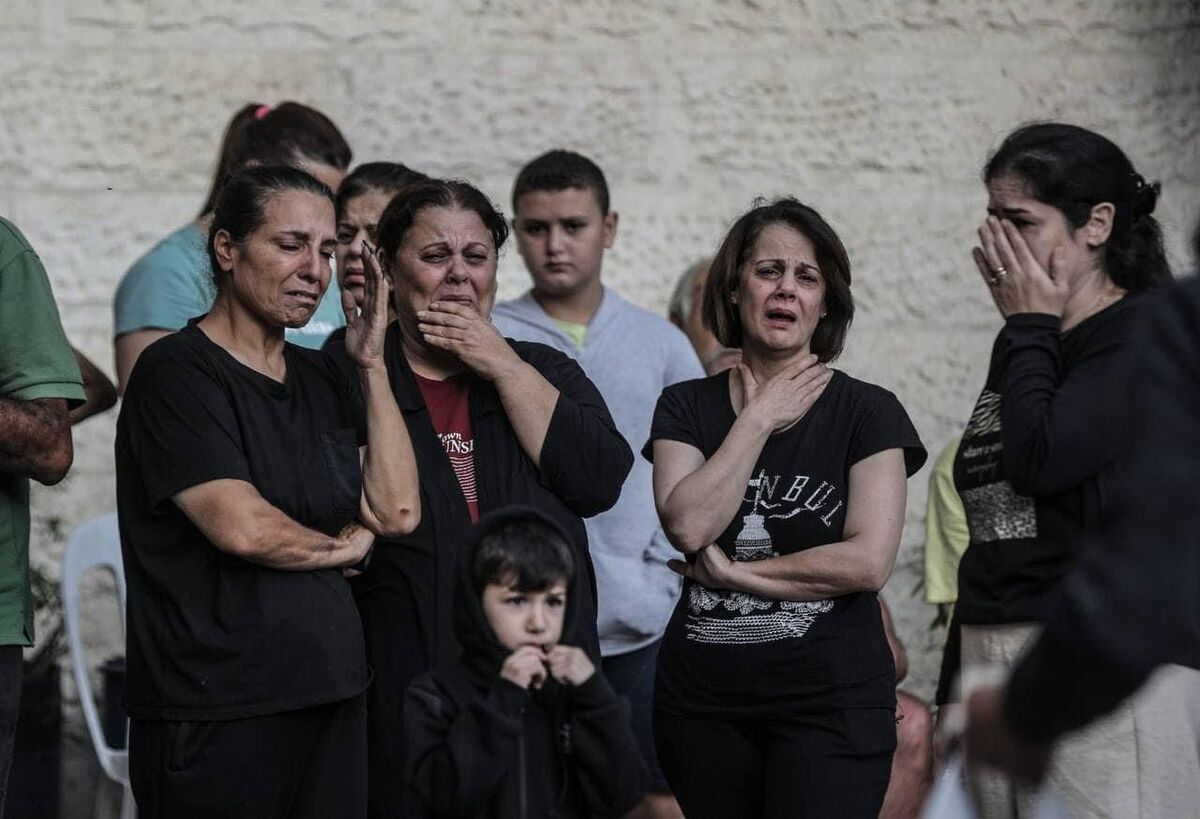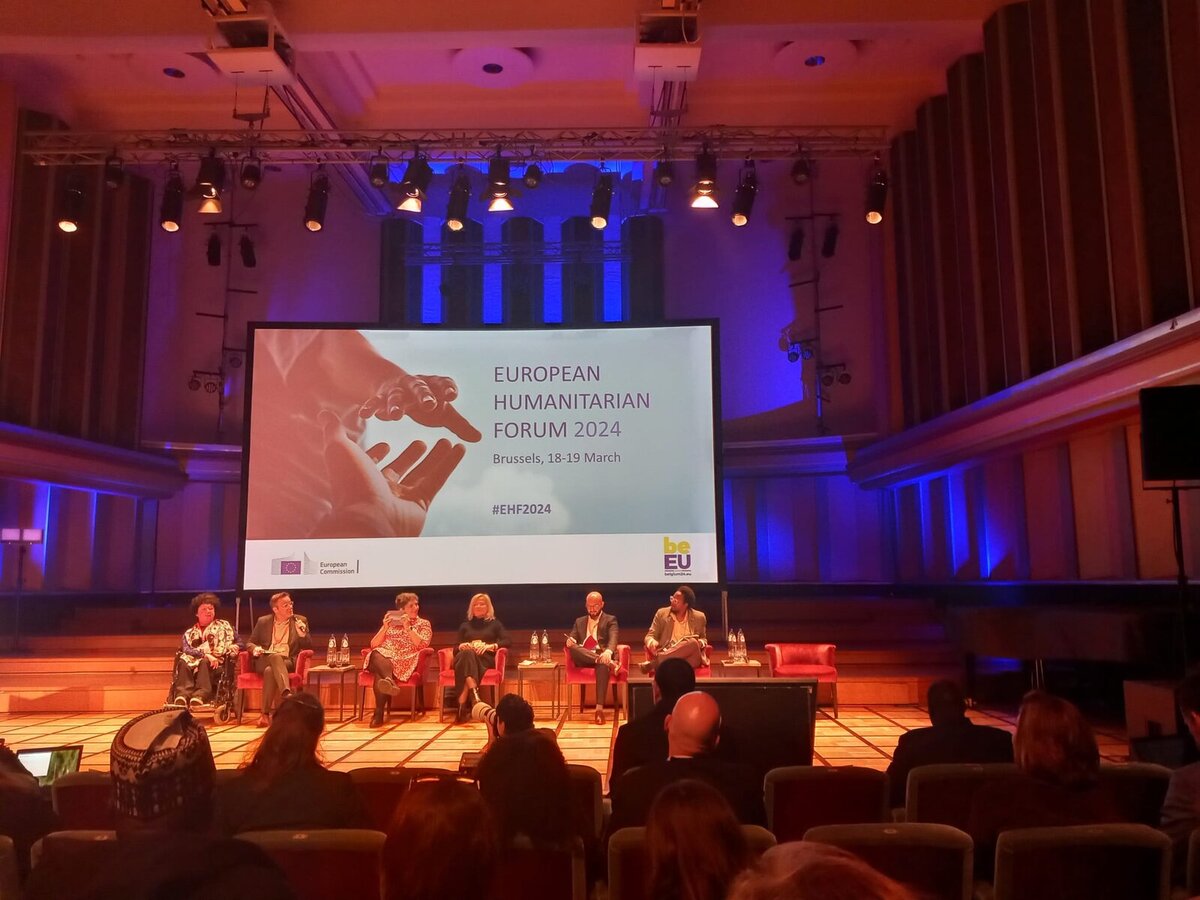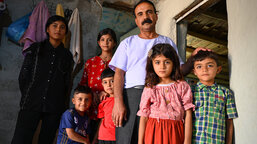In 2024, 300 million people will need humanitarian assistance. The world is experiencing a record number of conflicts since the end of the Second World War. Worsening climate change is also causing immense problems. Humanitarian aid is increasingly needed. However, its provision faces a number of challenges, from insufficient funding to overlooking forgotten crises. These challenges were also the focus of last week's European Humanitarian Forum in Brussels. Here are the key takeaways from the Forum.
1. Unprecedented level of humanitarian needs
This year, it is estimated that up to 300 million people in 72 countries will need humanitarian assistance. The number of people suffering from hunger has increased by more than 120 million in just three years. The number of displaced people is also alarming. By the end of June last year, there were 110 million displaced people worldwide. UNHCR projects that by 2024 there will be more than 130 million forcibly displaced people.
"The number of displaced people globally is steadily increasing. 1 in 73 people in the world are displaced," Lisa Doughten, Director of the Division of Financing and Partnerships at the UN Office for the Coordination of Humanitarian Affairs (OCHA), mentioned at the European Humanitarian Forum. According to Doughten, the crises in Sudan and Gaza came as a surprise that led to the significant increase in the number of displaced people. These and other conflicts are causing unprecedented levels of vulnerability and human suffering and increasing humanitarian needs. Moreover, current conflicts are becoming more protracted and complex.
Humanitarian needs are also being exacerbated by the climate crisis, which is hitting many countries around the world, from Peru to Kenya, Syria, Afghanistan and Somalia. Climate change is expected to continue to worsen the situation in these areas and lead to further massive displacement.
2. Humanitarian funding gap and prioritisation of aid
As the number of humanitarian crises increases each year, the need for more and more funding grows. This has long been unmet, and the gap between humanitarian needs and the funding spent on them is widening - in 2023, the funding provided could only cover 40 per cent of total humanitarian needs.
The humanitarian funding gap has concrete impacts on the lives of people who depend on humanitarian assistance. "We have had a very challenging year. The financial resources spent on humanitarian aid are completely inadequate. At World Food Programme, we have to make very painful choice to cut people from emergency feeding system," said Cindy McCain, Executive Director at United Nations World Food Programme. Yet the needs are enormous. "WFP has been forced to drop from lifesaving assistance 10 million people in Afghanistan, 4 million people in Syria or 3 million people in Somalia," lists McCain.
Not only the World Food Programme, but many other humanitarian organisations have to make difficult decisions about where and to whom they can provide aid. "One word that gives me shivers is prioritisation. You cannot prioritise one life over another. One crisis over another. The crises are multiplying and resources are not sufficient," mentioned Janez Lenarčič, European Commissioner for Humanitarian Aid and Crisis Response, during the Forum.
The revision of the EU's long-term budget offered an opportunity to address the humanitarian funding gap. However, at the end of February, the European Parliament approved the revision of the long-term budget as agreed by the European Council. "This is bad news for the EU's humanitarian budget, as it will not receive the requested increase. In addition, it also leads to cuts in the emergency funding available to complement it," explains Jan Líska, Institutional Funding Advisor at Caritas Czech Republic.
VOICE, the largest European humanitarian NGO network of which Caritas Czech Republic is a member, also expressed its disappointment with this decision in a statement. "At a time when the number of people in need reached 364.6 million in 2023, with a staggering €34 billion funding gap resulting from only 40% of the global humanitarian appeal being funded, this decision marks a significant step backwards in addressing the escalating humanitarian crises worldwide," the VOICE network mentioned in a statement.
3. Forgotten crises
The world is currently experiencing a record number of conflicts and crises since the end of the Second World War. From the war in Gaza, which is hitting civilians particularly hard, to the ongoing conflict in Ukraine, to crises that receive less media attention. It is these crises that were the focus of this year's European Humanitarian Forum.
"An example of a crisis that is not on the radar is the situation in Myanmar," said, for example, Lisa Doughten of OCHA. Since the military coup in February 2021, Myanmar has faced a critical deterioration of the situation exacerbated by last year's renewed clashes between armed opposition groups and the military.
The Democratic Republic of Congo is also facing one of the world's most protracted crises. 25.4 million people are in need of humanitarian aid. Major conflict is also taking place in Sudan. Fighting between the Sudanese army and paramilitary Rapid Support Forces has caused the world's largest ever migration crisis. Sudan also has the highest ever number of displaced children in the world.
With numerous wars and crises filling the headlines, long-overlooked crises are increasingly forgotten. Whether it is the underfunding of humanitarian aid for Rohingya refugees in Bangladesh, girls in Afghanistan who are denied basic human rights, or the millions of children around the world who do not have access to education. The European Humanitarian Forum has also drawn attention to the situation in the Central Sahel region of Africa, which includes countries such as Burkina Faso, Mali and Niger, where an estimated 20 million people live in conflict-affected areas. 2.4 million of them are in need of food aid and the number of those in need may increase due to continued displacement.
At the same time, overlooked crises face a chronic shortage of funding to provide humanitarian assistance. The Forum has highlighted the need for flexible funding to enable a needs-based approach in forgotten crises. "It is important that funding gets to where it is needed quickly,“ mentioned, for example, Martin Griffiths, UN Under-Secretary-General for the Coordination of Humanitarian Affairs.
The work of humanitarian organisations such as Caritas Czech Republic remains much needed in helping people affected by the current crises and conflicts around the world.













